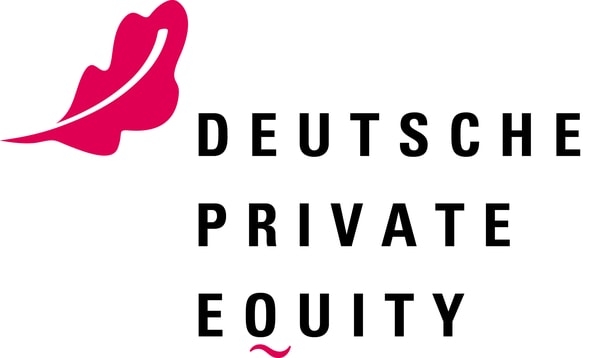The landscape of business and investment continually evolves, making it crucial for companies to adapt and innovate. In this context, freelance private equity consultants have emerged as key players in driving business transformation and growth. These experts bring a unique blend of skills, insights, and experience that can significantly impact a company’s trajectory. This article delves into the realm of private equity consulting, offering a comprehensive guide to understanding its role, benefits, and the vital skills these consultants possess.
What is Private Equity? And How Does It Work?
Private equity represents a critical segment of the finance industry: Private Equity Firms (short PE) focus on investments in private companies or public companies with the intention of taking them private.
This approach contrasts with public equity investments, where shares of companies are traded on public stock exchanges.
Private equity firms typically invest in established companies, with the goal of creating value through operational changes or add-on M&A. A Private Equity firm can launch multiple funds that are typically expected to return investor value after 10 years.
Venture Capital (VC) is a subset of Private Equity: While both firms invest in privately held firms, VC firms have a higher risk profile and invest in earlier stages, whereas PE firms typically invest in established firms with a longer track record.

What is a Freelance Private Equity Consultant and When to Hire One?
A Freelance Private Equity Consultant supports either PE firms or, more commonly, Portfolio Companies, with various tasks.
For Private Equity Firms: Private Equity Consulting services can support smaller PE firms with their fundraising and set-up processes.
For Portfolio Companies: Portfolio Companies need to show growth within a very short amount of time. However, resources at PE firms are often constrained when it comes to especially inorganic growth and M&A. A Private Equity consultant can therefore be a useful addition to help portfolio companies leverage add-on M&A growth opportunities.
Independent advisors, as opposed to more rigid consulting firms, serve as in-house partner to the PE firm or portfolio company, and thus are more flexible in how they can deliver value.
→ Find 3,000+ Private Equity Consultants on Fintalent.io
What Does a Private Equity Advisor Do?
Private equity advisors undertake a range of tasks, each critical to the investment process. These include:
Deal Sourcing:
In this phase, advisors focus on identifying and evaluating potential investment opportunities. They leverage their networks and industry knowledge to find companies that align with the investment criteria of the private equity firm. This process involves market research, analyzing industry trends, and assessing the growth potential of target companies.
Financial Modeling:
Here, advisors develop comprehensive financial models to project future performance and assess the valuation of potential investments. These models are critical in determining the feasibility and potential returns of an investment, aiding in decision-making processes.
Due Diligence:
During due diligence, advisors meticulously review the financial, legal, and operational aspects of a target company. They identify risks and validate the information provided, ensuring that the investment is sound and aligns with the firm’s strategy.
Add-on M&A:
This task involves identifying and executing strategic acquisitions for portfolio companies. Advisors play a key role in sourcing add-on acquisition targets, conducting due diligence, and integrating these acquisitions to drive growth and enhance value.
Post-merger Integration:
After a merger or acquisition, advisors assist in the integration process, ensuring a smooth transition and alignment of operations, cultures, and systems. They focus on realizing synergies, optimizing performance, and achieving the strategic objectives of the merger or acquisition.
What Skills Should an Independent PE Consultant Have?
The expertise of a private equity consultant extends beyond mere financial advising. They play a vital role in reshaping a company’s strategic direction, streamlining operations, and introducing innovative technologies and systems for sustainable growth. Their involvement typically begins with a comprehensive analysis of a business’s operations, team, and goals. This analysis forms the foundation for developing strategies to bridge resource gaps, enhance efficiency, and ensure compliance with regulatory standards. Let’s delve into the specific skills that define an effective private equity investment consultant:
Conducting Research and Understanding Business Drivers: Private equity consultants must excel in conducting thorough research to comprehend the key drivers of a business. This involves analyzing market trends, customer behaviors, and the competitive landscape. They must understand the intricacies of the industry in which the business operates and identify potential growth opportunities or threats. This skill is crucial for formulating strategies that align with the company’s goals and the expectations of investors.
Analyzing Investment Opportunities: A critical skill for private equity consultants is the ability to analyze and present new investment opportunities. They must possess the acumen to evaluate the viability of these opportunities, considering factors such as market potential, financial stability, and long-term growth prospects. This skill is essential for guiding businesses in making informed decisions about where to allocate resources and how to diversify their investment portfolio.
Reworking Business Processes for Sustainability: Consultants in private equity need to have the expertise to rework and optimize business processes. This includes identifying inefficiencies and proposing solutions that promote sustainability and scalability. They must be adept at leveraging technology to streamline operations, reduce costs, and enhance overall business performance.
Support for Due Diligence: Engaging in due diligence is a pivotal skill for private equity consultants. This includes building financial models, preparing documentation, and conducting valuation analyses. Their proficiency in due diligence ensures that all aspects of a deal are meticulously examined, reducing risks and enhancing the likelihood of a successful transaction.
Collaborating with Key Stakeholders: Effective collaboration with private equity firms, investors, and executives is vital. Consultants must possess strong communication and negotiation skills to ensure that all parties are aligned and that transactions are executed smoothly.
Compliance and Reporting Roadmaps: Private equity consultants need to provide clear guidelines for compliance and reporting. They should be knowledgeable about regulatory requirements and skilled in creating frameworks that ensure businesses adhere to these standards while maintaining operational efficiency.
Risk Management and Infrastructure Rework: They must be adept at identifying potential risks and developing strategies to mitigate them. This often involves a thorough rework of a company’s infrastructure and systems, ensuring that they are robust and capable of supporting growth and change.
What’s the Salary of a Private Equity Consultant?
The salary of a Private Equity professional encompasses various components, making their compensation one of the most lucrative in the financial sector. Typically, this includes a base salary (fixed compensation), bonuses (variable compensation), and a share of the profits earned from investments, known as ‘carry’ or carried interest. The private equity incentive structure often follows the “2-and-20” model. In this model, PE professionals receive a management fee of 2% of the assets under management, providing a steady stream of income irrespective of the fund’s performance.
Additionally, they earn 20% of the profits generated by the fund, beyond a specified return threshold, which significantly enhances their earning potential. This structure aligns the interests of private equity professionals with those of their investors, motivating them to maximize returns on investments. The combination of fixed and variable compensation, along with the potential for substantial earnings through carried interest, underscores the high earning potential of private equity consultants in the industry.
Due to this structure, external PE consultants present enormous leverage, as they can operate outside of these fee structures and thus save costs through their flexibility.
Success Stories of Private Equity Experts
Fintalent is a platform of more than 3000 freelance M&A professionals, with more than 500 of them having significant experience in Private Equity.
Freelance Private Equity Consultants on the Fintalent platform support organizations with their buy-side M&A activities, typically in the context of bolt-on/add-on M&A activities.
























